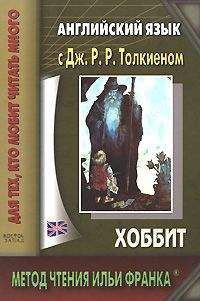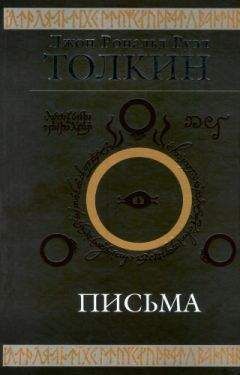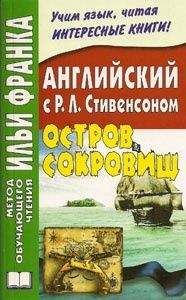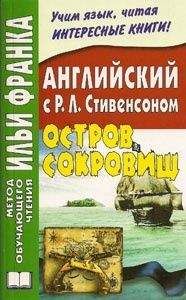misery [ˈmɪz (ǝ) rɪ] slaughter [ˈslɔ: tǝ] glorious [ˈɡlɔ: rɪǝs]
On all this Bilbo looked with misery. He had taken his stand on Ravenhill among the Elves — partly because there was more chance of escape from that point, and partly (with the more Tookish part of his mind) because if he was going to be in a last desperate stand, he preferred on the whole to defend the Elvenking. Gandalf, too, I may say, was there, sitting on the ground as if in deep thought, preparing, I suppose, some last blast of magic before the end. That did not seem far off. “It will not be long now, ” thought Bilbo, “before the goblins win the Gate, and we are all slaughtered or driven down and captured. Really it is enough to make one weep, after all one has gone through. I would rather old Smaug had been left with all the wretched treasure, than that these vile creatures should get it, and poor old Bombur, and Balin and Fili and Kili and all the rest come to a bad end; and Bard too, and the Lake-men and the merry elves. Misery me! I have heard songs of many battles, and I have always understood that defeat may be glorious. It seems very uncomfortable, not to say distressing. I wish I was well out of it. ” The clouds were torn by the wind, and a red sunset slashed the West.
Seeing the sudden gleam in the gloom (увидев внезапный проблеск во мгле) Bilbo looked round (Бильбо огляделся кругом). He gave a great cry (он издал громкий крик): he had seen a sight (он увидел такое: «вид») that made his heart leap (что заставило его сердце подпрыгнуть), dark shapes small yet majestic (темные фигуры, еще маленькие, но величественные) against the distant glow (на фоне: «напротив» удаленного отблеска).
“The Eagles (Орлы)! The Eagles!” he shouted (закричал он). “The Eagles are coming (приближаются Орлы)!” Bilbo’s eyes were seldom wrong (глаза Бильбо редко ошибались: «были редко неправы»; wrong — неправильный, неверный, ошибочный, ложный). The eagles were coming down the wind (орлы снижались по ветру), line after line (ряд за рядом; line — линия; ряд, строй), in such a host (таким войском) as must have gathered (какое должно было быть собрано = должно быть, было собрано) from all the eyries of the North (со всех орлиных гнезд на Западе).
“The Eagles (Орлы)! the Eagles!” Bilbo cried (кричал Бильбо), dancing and waving his arms (пританцовывая и размахивая руками). If the elves could not see him (если эльфы и не могли видеть его) they could hear him (но они могли его слышать). Soon they too took up the cry (вскоре и они подхватили этот крик; to take (took, taken) up — подхватить), and it echoed across the valley (и он разнесся отзвуком по всей долине). Many wondering eyes looked up (много удивленных/изумленных глаз поднялось к небу; to look up — поднимать глаза, обращать взоры /к кому-либо/), though as yet nothing could be seen (хотя еще ничего не было видно) except from the southern shoulders of the Mountain (кроме как с южного склона Горы).
“The Eagles (Орлы)!” cried Bilbo once more (снова: «еще раз» крикнул Бильбо), but at that moment (но в этот самый момент) a stone hurtling from above (с силой брошенный сверху камень; to hurtle — нестись, мчаться, с силой бросать, швырять, сталкивать) smote heavily on his helm (сильно ударил по его шлему; to smite (smote, smitten) — ударять (ся), бить (ся) ), and he fell with a crash (и он упал с грохотом) and knew no more (и больше ничего не помнил; to know (knew, known) — знать, иметь понятие, представление).
majestic [mǝˈdʒestɪk] eagle [ˈi: ɡ (ǝ) l] hurtle [hǝ: tl]
Seeing the sudden gleam in the gloom Bilbo looked round. He gave a great cry: he had seen a sight that made his heart leap, dark shapes small yet majestic against the distant glow.
“The Eagles! The Eagles!” he shouted. “The Eagles are coming!” Bilbo’s eyes were seldom wrong. The eagles were coming down the wind, line after line, in such a host as must have gathered from all the eyries of the North.
“The Eagles! the Eagles!” Bilbo cried, dancing and waving his arms. If the elves could not see him they could hear him. Soon they too took up the cry, and it echoed across the valley. Many wondering eyes looked up, though as yet nothing could be seen except from the southern shoulders of the Mountain.
“The Eagles!” cried Bilbo once more, but at that moment a stone hurtling from above smote heavily on his helm, and he fell with a crash and knew no more.
Chapter 18. The Return Journey
(Глава 18. Обратное путешествие)
return — возвращение
When Bilbo came to himself (когда Бильбо пришел в себя), he was literally by himself (он был, /совершенно/ буквально, один). He was lying on the flat stones of Ravenhill (он лежал на плоских камнях Вороньего Холма), and no one was near (и никого не было поблизости). A cloudless day, but cold (день безоблачный, но холодный), was broad above him (стоял /над ним/; broad — широкий, обширный). He was shaking (его трясло), and as chilled as stone (и он замерз, словно камень), but his head burned with fire (но его голова горела огнем).
“Now I wonder what has happened (интересно, что же случилось)?” he said to himself (сказал он сам себе). “At any rate (в любом случае) I am not yet one of the fallen heroes (я все еще не один из погибших героев; fallen — упавший; павший /в бою/); but I suppose (но, я полагаю) there is still time enough for that (что для этого все еще достаточно времени)!”
He sat up painfully (он с трудом поднялся; to sit (sat) up — садиться, приподниматься/излежачегоположения/, выпрямляться; painfully — болезненно, мучительно; pain — боль). Looking into the valley (вглядываясь в долину) he could see no living goblins (он не смог увидеть ни одного живого гоблина). After a while (спустя какое-то время) as his head cleared a little (когда его голова слегка прояснилась; to clear — очищать (ся), становиться ясным), he thought he could see elves (ему показалось: «он подумал», что он мог видеть эльфов; to think (thought) ) moving in the rocks below (двигающихся между скал внизу). He rubbed his eyes (он протер свои глаза; to rub — тереть, протирать). Surely there was a camp still (действительно, там все еще был лагерь) in the plain some distance off (на равнине, в некотором расстоянии); and there was a coming and going about the Gate (и у ворот были какие-то движения взад и вперед: «приходы и уходы»)? Dwarves seemed to be busy (казалось, что гномы заняты тем) removing the wall (что разбирают стену; to remove — убирать, снимать, отодвигать). But all was deadly still (но все было чрезвычайно тихо; deadly — /эмоц. — усил. / чрезвычайно, смертельно, до смерти). There was no call (не было никаких криков) and no echo of a song (и никаких откликов: «эхо» песен). Sorrow seemed to be in the air (в воздухе, казалось, была сама печаль).
“Victory after all, I suppose (победа, все же: «после всего», я полагаю)!” he said, feeling his aching head (ощупывая свою ноющую голову; to ache — болеть, испытывать боль). “Well, it seems a very gloomy business (ну, кажется, что это очень печальное дело). ”
literally [ˈlɪt (ǝ) rǝlɪ] hero [ˈhɪ (ǝ) rǝʋ] aching [ˈeɪkɪŋ]
When Bilbo came to himself, he was literally by himself. He was lying on the flat stones of Ravenhill, and no one was near. A cloudless day, but cold, was broad above him. He was shaking, and as chilled as stone, but his head burned with fire.
“Now I wonder what has happened?” he said to himself. “At any rate I am not yet one of the fallen heroes; but I suppose there is still time enough for that!”
He sat up painfully. Looking into the valley he could see no living goblins. After a while as his head cleared a little, he thought he could see elves moving in the rocks below. He rubbed his eyes. Surely there was a camp still in the plain some distance off; and there was a coming and going about the Gate? Dwarves seemed to be busy removing the wall. But all was deadly still. There was no call and no echo of a song. Sorrow seemed to be in the air.
“Victory after all, I suppose!” he said, feeling his aching head. “Well, it seems a very gloomy business. ”
Suddenly he was aware of a man (внезапно он увидел человека; aware — осознающий; замечающий) climbing up and coming towards him (карабкающегося наверх и подходящего к нему).
“Hullo there (эй, привет)!” he called with a shaky voice (крикнул он дрожащим голосом). “Hullo there (эй)! What news (какие новости)?”
“What voice is it that speaks among the stones (что это за голос, что говорит меж камней)?” said the man halting (сказал человек, останавливаясь) and peering about him (и оглядываясь вокруг /себя/) not far from where Bilbo sat (не вдалеке от того места, где сидел Бильбо).





